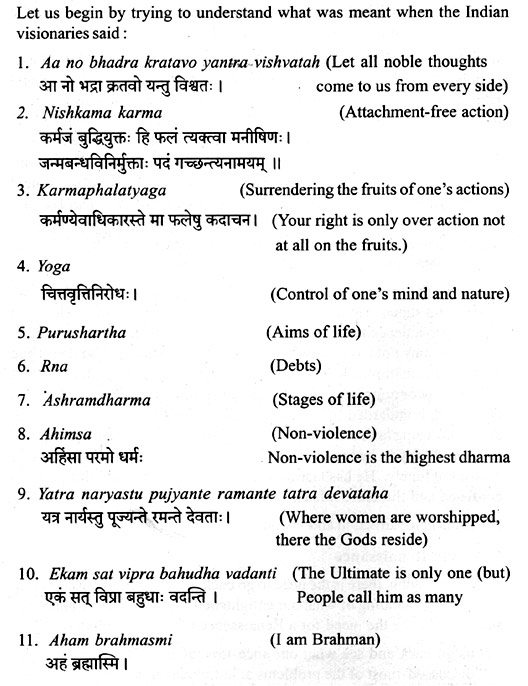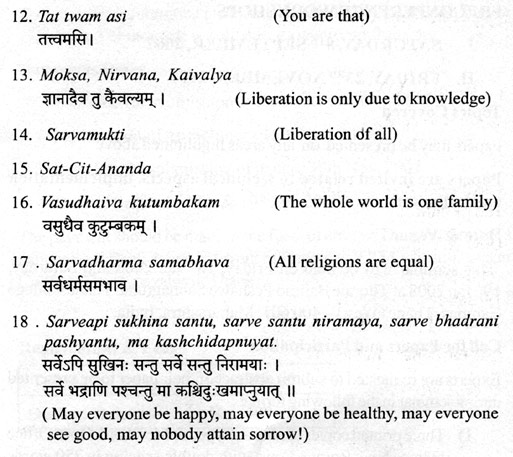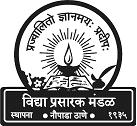India
has a rich philosophical heritage right from the Vedic-Upanishadic
to the Scholastic period. Commentaries over commentaries were written.
Schools and sub-schools of philosophical thought were formed. Sects
and sub-sects took birth as per the need and demands of the time,
and the
amount of freedom the scholars exercised.
Indian philosophical thought reached its pinnacle during that phase.
Scholars from all over the world came to India to learn, understand
and take back these scholarly ideas. But, at the same time, there
was a need to simplify and re-write Indian philosophy as per the
demand of the circumstances, mainly socio- political. For example,
Jnaneshwar wrote Jnaneshwari and brought Bhagvadgita to the common
man. Tulsidas wrote Ramacharitamanas to simplify Valmiki’s Ramayana
for simple minds. Swami Vivekananda had to give the concept of Practical
Vedanta for depressed, ignored and illiterate people of India during
preindependence. He converted the abstract, idealistic philosophy
of Advaita Vedanta into a clear, simple and optimistic form.
Similarly,
the confused Indian of the 21st century has so called education,
money and status. He is also science and technology friendly. He
is not like the pre-independence Indian, or one during the independence
struggle. Today, he may not have knowledge or wisdom as such, but
he does have a lot of information. He has degree, money, status
and freedom-at least political, economic and social. But he is totally
confused, stressed, depressed, bombarded by an alien culture. He
is alone. He is breaking down and losing faith in the importance
of institutions like marriage, family, religion. Today he has everything
but he is empty. He is in the midst of a crowd but lonely. He has
learnt the means to achieve many things but is
confused and therefore misuses those means.
He
needs help, direction and vision.
Need
for Renaissance
Thus, once again, there is the need to go back to our originals.
Rethinking and re-understanding of what our enlightened and visionary
thinkers had said. And hence the need for a Renaissance of ancient
Indian thought. Let us go back and see what our ancestors taught.
They have thought and discussed most of the problems at individual
as well as social level.
Let
us understand and put it in the form of today’s language, so that
we will be able to re-built and re-structure all the institutions
which man has started destroying and demolishing.


Questions
1. Are there only cliches to be mouthed on suitable occasions to
glorify
the Indian traditions? Or
2. Are they really pathways to follow, if suitably reinterpreted
to suit
the modern times?
3. Can they offer valid solutions for personal and social problems
of
the Indian of the 21st century?
There is a need for rethinking and revisiting these, and related,
Indian
philosophical concepts of ancient times to answer these questions.
Hence this seminar.


